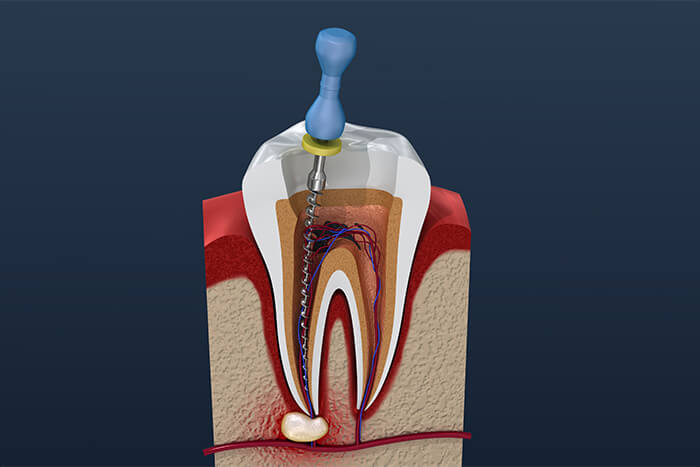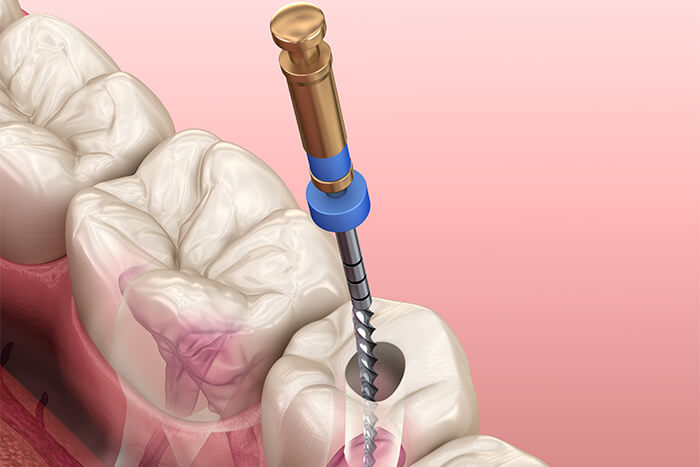Root canal treatment for saving natural teeth
If you are experiencing a severe toothache and require immediate dental care, our team at Pleasant Hill Dental can assist by performing necessary treatments. Necessary treatment may include root canal therapy, which is a way of rescuing an infected or damaged tooth that might otherwise need removal.
What is root canal therapy?
Root canal therapy, also called endodontic treatment, is a procedure performed on a tooth with a severe toothache, infection, or severe tooth decay that risks removal. Root canal therapy is performed to save the tooth and avoid extraction, allowing the natural tooth to remain in place after treatment.
What are the signs that I may need root canal treatment?
- Sensitivity with hot and cold foods and beverages
- Swollen, tender gums around the problem tooth
- Severe toothache and pain, especially when chewing or biting food.
- Visible darkening or decay on the tooth or gums
What can I expect from root canal therapy?
- Examination. Using high-precision 3D X-ray equipment, Dr. Cheng Zhu will evaluate the tooth and determine if it would benefit from endodontic therapy.
- Preparation. Local anesthetic and sedation are used to ensure you are comfortable during your procedure.
- Removal. The infected area is accessed through the tooth, and the infected tissue and dental pulp are removed.
- Sealing. After the infected pulp tissue is removed, the canals are filled and strengthened using a special filling called gutta-percha and composite resin.
- Protection. Root canal therapy can leave a tooth weak and brittle, so an additional appointment is made to place a crown over the treated tooth.
Root canal aftercare instructions
Dr. Cheng Zhu will provide you with the information you need to maintain your oral health and reduce the risk of complications following root canal therapy. It is essential that you follow these guidelines and recommendations to keep your smile healthy after the procedure.
Don’t wait to get the care you require!
If you require root canal treatment, the longer you delay the procedure, the more likely you will experience failed endodontic therapy or the need to extract the tooth permanently. Make the right choice and call Pleasant Hill Dental today to get in for your necessary dental work. We are located at 1894 Contra Costa Boulevard in Pleasant Hill, California, and can be reached by calling (925) 693-7077 for an appointment.

Root canal therapy is a very common procedure. It has a reputation of being undesirable and painful. But when done properly it is actually painless. Every tooth in your mouth is composed of a crown and a root. When a cavity or bacteria penetrates the tooth, the root and its nerves become irritated. As a result, the bacteria within the pulp cavity needs to be removed and cleaned in order to restore the tooth to its healthy state. Following the procedure, the tooth is fragile and consequently is restored with the natural crown for a lifetime of durability. Root canals have a success rate of 95% or greater. Most root canal are diagnosed by patients’ sensitivities to a specific tooth. Be sure to consult your dentist any symptoms or discomfort occur.



